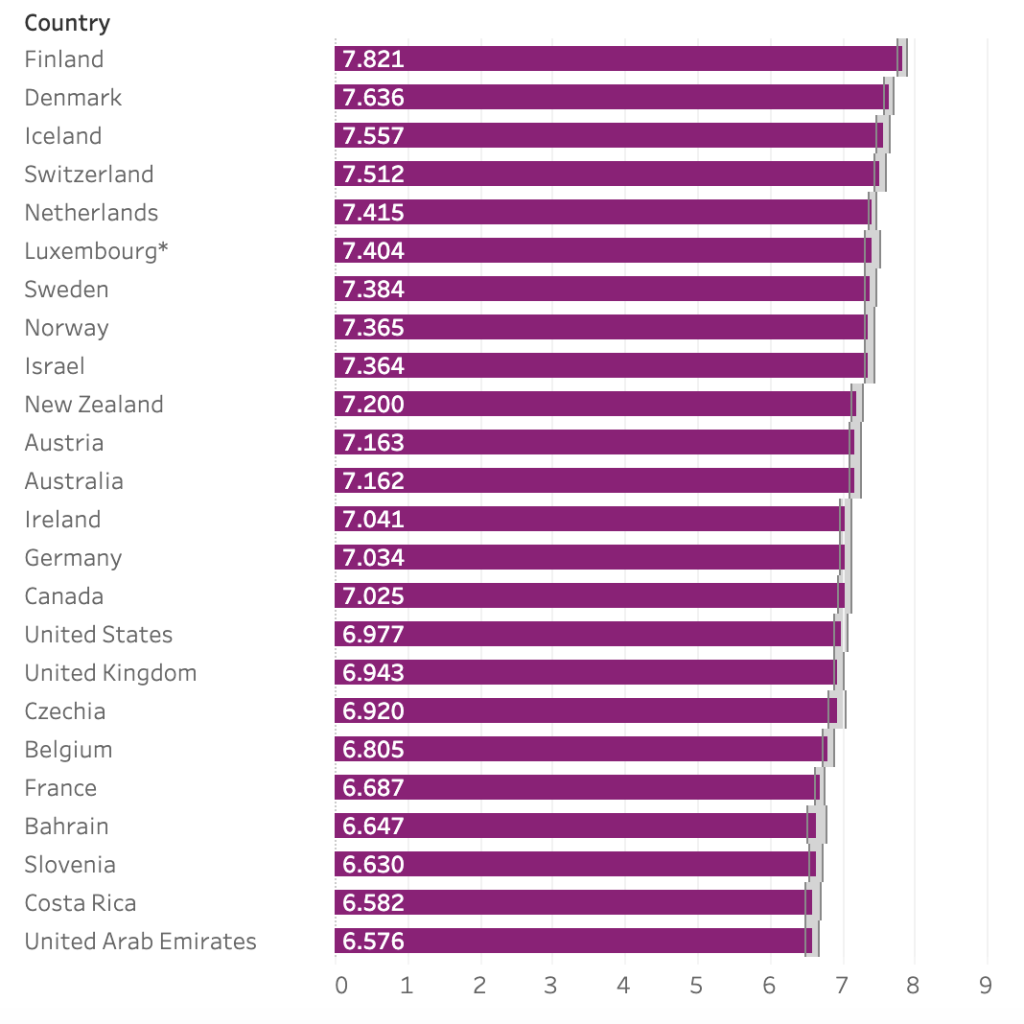Every year on March 20th, the world celebrates World Happiness Day, and the UN Sustainable Development Solutions Network releases the World Happiness Report, an annual report measuring global happiness on several standards, including national and international aspects. This report ranks countries based on parameters such as healthy life expectancy, GDP per capita, social support, perception of corruption, generosity, and freedom to make key life decisions. While India’s ranking has improved from 136 to 126 in the latest report, it still lags behind many small neighbours and other countries facing economic or political hardships, inviting criticism and debates.
Understanding the World Happiness Report Rankings
It’s essential to acknowledge that the World Happiness Report rankings are not the definitive measure of a country’s happiness or well-being. There are several limitations to the methodology used in creating the rankings, such as reliance on self-reported data, exclusion of certain factors that may impact happiness, and potential biases in the selection of countries included in the study. However, the report is still a valuable tool for gaining insights into the factors that contribute to happiness and well-being.
World happiness report 2023 list:

Source: worldhappiness.report
Examining India’s Low Ranking
India’s low ranking in the 2022 report indicates areas where the country needs to improve to increase the happiness and well-being of its citizens. The report highlights issues such as low healthy life expectancy and perception of corruption, which could be addressed through investments in healthcare and anti-corruption measures. By considering these insights, India can work towards improving the well-being of its population.
Debating the Rankings and Broader Context
The World Happiness Report rankings have sparked debates regarding India’s ranking in comparison to other countries facing economic and political hardships. However, it’s important to note that the rankings are based on various parameters, and happiness and well-being are complex and multi-dimensional concepts. Rankings may not always accurately reflect a country’s population’s true state of happiness or well-being. Therefore, it’s crucial to consider the broader context in which the rankings are being discussed.
Conclusion
The World Happiness Report is a valuable tool for gaining insights into the factors that contribute to happiness and well-being. While India’s low ranking in the 2021 report indicates areas for improvement, it’s essential to consider the broader context in which the rankings are being discussed. By addressing the issues highlighted in the report and acknowledging the limitations of the methodology, India can work towards improving the well-being of its citizens.
FAQs
What is the rank of India in World Happiness Report 2023?
According to the report, India ranked 126th out of 137 countries, placing behind Pakistan (108), Sri Lanka (112), Myanmar (117), and Bangladesh (118).
Why is India ranked so low in World Happiness Index?
There are several factors that have contributed to the ongoing unhappiness in the country. These include the swift urbanization and overcrowding in cities, apprehensions about the safety of food and water, the escalating expenses of healthcare, the safety of women, and the issue of environmental pollution, which is closely tied to deteriorating mental well-being.
What country has the highest rate of happiness?
According to the 2023 World Happiness Report, Finland has been rated as the happiest country on the planet.
















